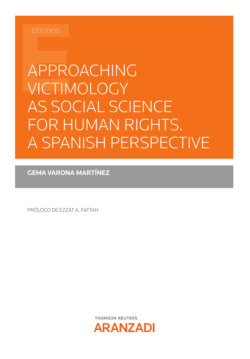Читать книгу Approaching Victimology as social science for Human rights a Spanish perspective - Gema Varona Martínez - Страница 21
На сайте Литреса книга снята с продажи.
1.3.2. Resistance and recovery
ОглавлениеThere are not many theories or models focused on resistance, resilience or recovery. As an example, a Psycho/Social Coping Model (P/SCM) is presented by Dussich (2011) as a general theory for understanding all forms of victimisation and for facilitating recovery. Limited resources make people vulnerable to victimisation. To prevent victimisation, people lacking resources must be identified so that specific resources to their unique needs are given. According to Dussich (2011), the implications of this model are the following:
• “The P/SCM suggests that persons who have been victimised must be empowered with tailored resources to prevent their re-victimisation or their conversion to offending.
• Notions of victim guilt or blame only have a place in legal considerations, not for understanding victim behaviour and helping victims recover. Guilt or blame is usually considerations when dealing with crime victims.
• Recovery is best facilitated by providing tailored resources that are person-specific, culture-sensitive & situation-realistic.
• Appropriate coping can be taught and is a method that has been shown to reduce violence in many settings, especially schools.
• Some victims may need to learn new coping skills that were never taught them at home. Of special importance are problem-solving skills: how to assess problems realistically, search for alternative solutions based on their consequences, selection of the best options, carrying out the selected option, and, evaluating the results”.
